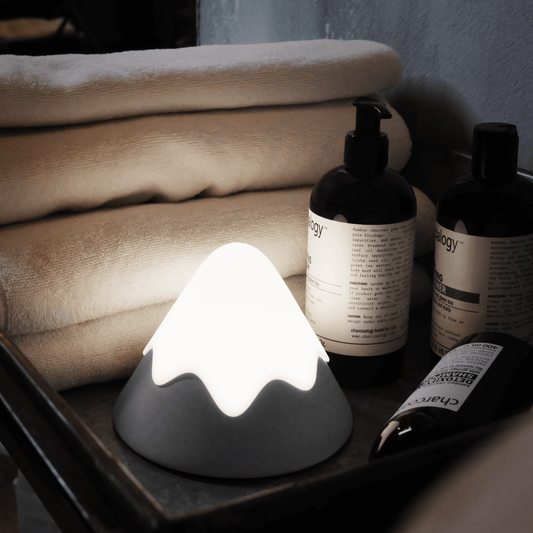When we think of a healthy relationship, the image of couples happily sharing a bed often comes to mind. But what if sleeping together isn’t actually helping your relationship? Enter the concept of a “sleep divorce”, a growing trend in which couples intentionally sleep in separate beds or even separate rooms for the sake of better sleep and, ultimately, a better relationship.

Far from signalling a failing partnership, many couples find that sleeping apart strengthens their bond by ensuring they get the restful, uninterrupted sleep they need. In fact, prioritising sleep can have far-reaching benefits for your physical health, emotional well-being, and relationship harmony. So, let’s explore what a sleep divorce is, why it’s worth considering, and how to make it work without losing intimacy.
What Is a Sleep Divorce?
A sleep divorce simply means that couples choose to sleep separately, often in different beds or rooms, to improve the quality of their sleep. This doesn’t mean your relationship is on the rocks - it’s more about recognising that good sleep is essential for both partners' well-being. Sleep deprivation can lead to irritability, increased stress, and even health problems. A sleep divorce is an arrangement that allows both partners to get the rest they need while still maintaining a loving and connected relationship.
Why Is Sleep So Crucial?
Sleep is foundational to nearly every aspect of our lives. Without it, we become more prone to mental health issues like anxiety and depression, not to mention physical health problems such as heart disease, obesity, and a weakened immune system. Beyond these individual concerns, a lack of sleep can take a serious toll on relationships. Sleep-deprived people tend to be more impatient, argumentative, and emotionally distant, which can create friction between even the most loving couples.
It’s not uncommon for couples to struggle with sleep disruptions when sharing a bed. Whether it’s snoring, different sleep schedules, or even fidgeting, these interruptions can make a good night’s rest elusive. In fact, many couples unknowingly sacrifice their sleep for the sake of tradition, but is it really worth it? This is where the concept of a sleep divorce comes in.
Bed Sharing vs. Sleep Divorce: Why Make the Switch?
Many couples feel pressured to share a bed simply because it’s the socially accepted norm. However, what works for some may not work for others, and clinging to tradition can sometimes do more harm than good. Sleeping together may seem romantic in theory, but if it’s leading to sleepless nights, a sleep divorce could be the key to saving your relationship and restoring your health.
The Benefits of a Sleep Divorce:
- Fewer Sleep Disruptions: Snoring, restless movements, or different sleep schedules can wreak havoc on a person’s ability to get a restful night’s sleep. Sleeping separately eliminates these disturbances, leading to more uninterrupted sleep.
- Better Sleep Quality: A well-rested person is less irritable, more focused, and better able to handle daily stressors. Over half of couples who try sleeping apart report significant improvements in their sleep quality.
- Improved Relationship Dynamics: When both partners are getting the sleep they need, they’re more likely to approach each other with kindness and patience, reducing the chances of arguments and resentment.
- Health and Safety: For those who suffer from sleep disorders such as REM sleep behaviour disorder, which can cause violent movements, sleeping separately can prevent accidental injuries.
The Potential Downsides of a Sleep Divorce:
- Less Spontaneous Intimacy: For some couples, sharing a bed allows for spontaneous physical intimacy. Sleeping separately requires more intentional planning to maintain that connection.
- Emotional Distance: While some couples thrive with separate sleep arrangements, others might miss the nightly closeness that comes with sharing a bed. Over time, this could lead to feelings of loneliness or detachment.
- Cost and Space Constraints: A sleep divorce isn’t always possible, especially in homes with limited space or without the budget to create a second comfortable sleeping area.
Making a Sleep Divorce Work: Practical Tips
If you and your partner decide to try sleeping apart, it’s important to approach it with careful planning and clear communication. Here are some tips to ensure your sleep divorce strengthens your relationship rather than weakens it:
1. Create a Comfortable Space for Both of You
It’s essential that neither partner feels like they’re being banished to an inferior sleeping space. If possible, invest in a good mattress and make sure the sleep environment is cool, dark, and inviting in both rooms. You want both of you to look forward to your sleep environment, not dread it.
2. Prioritise Intimacy
Just because you’re sleeping apart doesn’t mean you should neglect physical and emotional intimacy. Schedule time for cuddling, meaningful conversation, or any other activities that help you feel connected. This might mean dedicating time to each other before going to separate rooms or finding moments during the day to nurture your relationship.
3. Establish a Nightly Routine
Maintaining a routine, even if you’re sleeping separately, can help ease any feelings of anxiety or discomfort. Saying goodnight to your partner before heading to your own bed is a small but significant gesture that maintains emotional closeness.
4. Check In with Each Other Regularly
After a few weeks of sleeping apart, have an honest conversation about how it’s working for both of you. Is one partner feeling neglected? Is the other getting better sleep? Adjust as necessary to ensure both partners are satisfied with the arrangement.
Alternatives to a Full Sleep Divorce
If the idea of completely separate rooms feels too extreme, there are alternative solutions to improve sleep without fully committing to a sleep divorce:
- Scandinavian Sleeping Style: This involves using separate blankets in the same bed. It allows each partner to have their preferred level of warmth and freedom of movement without disturbing the other.
- Sleep Accessories: If snoring or noise is a major issue, consider earplugs, sleep masks, or white noise machines to reduce disturbances.
- Sleep Apnea Treatment: If snoring is particularly disruptive, it could be a sign of sleep apnea. Seek medical advice to explore potential treatments, such as a CPAP machine.
Sleep Divorce in the Spotlight: Real-Life Insights
The concept of a sleep divorce has been gaining traction in recent years, with some high-profile figures speaking openly about the benefits. For example, in a recent episode of The Diary of a CEO podcast, host Steven Bartlett interviewed sleep expert Matthew Walker, who discussed the crucial role sleep plays in overall health and how sleeping apart might be the key to better sleep for some couples. This has led to more people rethinking their sleep arrangements and considering what truly works best for them.
| Pros of a Sleep Divorce | Cons of a Sleep Divorce |
|---|---|
| Fewer sleep disruptions | May reduce intimacy |
| Better sleep quality overall | Requires additional space and cost |
| Improved relationship dynamics | Can feel emotionally isolating |
| Health and safety benefits | Some may miss the closeness |
Is a Sleep Divorce Right for You?
If sharing a bed is negatively impacting your sleep and relationship, it may be time to consider a sleep divorce. Prioritising sleep isn’t selfish; it’s essential for maintaining both physical and emotional health. At the end of the day, every couple is different, and what works for one relationship may not work for another.
The key is open communication, mutual understanding, and a willingness to prioritise both partners' well-being. Whether you choose to sleep apart permanently, temporarily, or explore alternatives like separate bedding, the goal remains the same: a happy, well-rested couple with a thriving relationship.




















